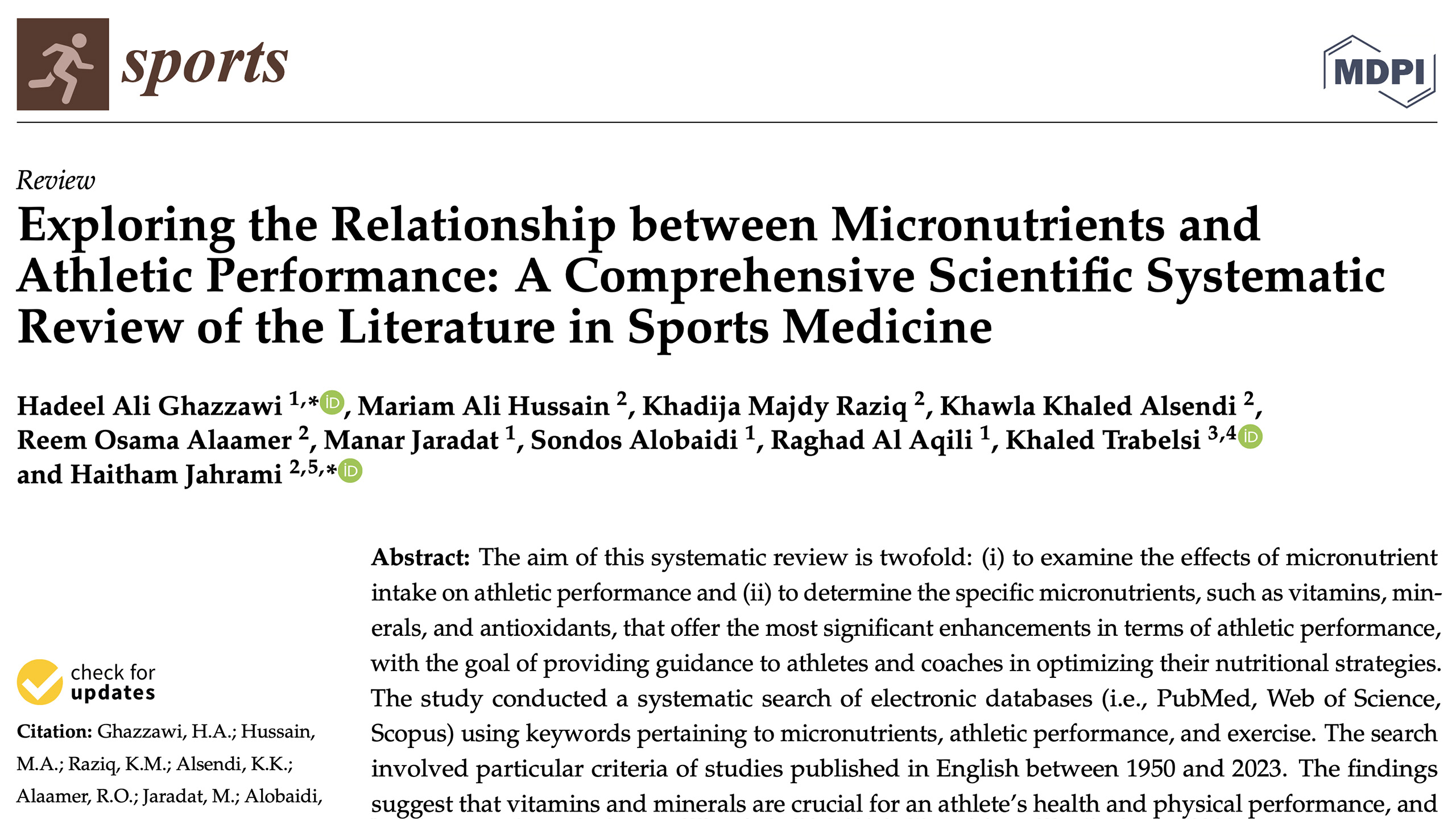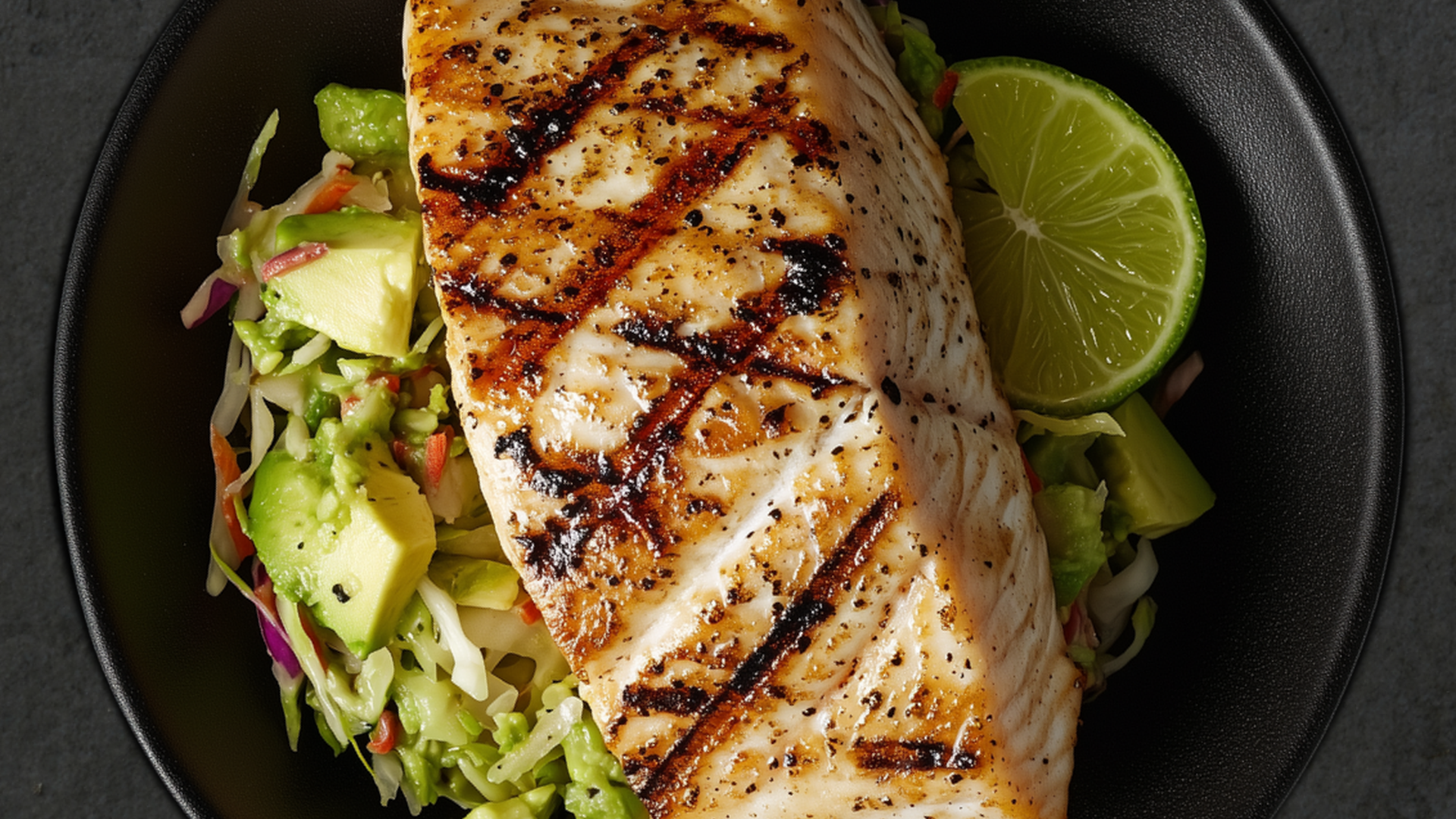The
Daily
Fix
For load:
Grilled Mahi-Mahi with Avocado Lime Slaw
Exploring the Relationship between Micronutrients and Athletic Performance:

Clean and jerk 1-1-1-1-1-1-1 reps
Smoky grilled mahi-mahi served over a creamy, zesty avocado lime slaw
A Comprehensive Review of Sports Medicine Literature
Additionally, practice L-sits for 20 minutes.
Compare to 250303.
Post loads to comments.
Ingredients
For the Mahi-Mahi:
6 oz mahi-mahi fillet
1 Tbsp butter (for grilling)
½ tsp smoked paprika
½ tsp garlic powder
¼ tsp sea salt
¼ tsp black pepper
1 Tbsp olive oil (for finishing)
For the Avocado Lime Slaw:
1 cup shredded green cabbage
½ small ripe avocado, diced
2 Tbsp fresh cilantro, chopped
1 Tbsp olive oil
1 Tbsp lime juice
½ tsp lime zest
¼ tsp sea salt
¼ tsp black pepper
Macronutrients
Protein: 44g
Fat: 35g
Carbs: 4g
Preparation
Prepare the Avocado Lime Slaw: In a bowl, combine the shredded cabbage (1 cup), diced avocado (½ small), and chopped cilantro (2 Tbsp). In a small bowl, whisk together olive oil (1 Tbsp), lime juice (1 Tbsp), lime zest (½ tsp), sea salt (¼ tsp), and black pepper (¼ tsp). Pour the dressing over the slaw and gently toss. Chill until ready to serve.
Prepare the Mahi-Mahi: Pat the mahi-mahi fillet (6 oz) dry with paper towels.Season with smoked paprika (½ tsp), garlic powder (½ tsp), sea salt (¼ tsp), and black pepper (¼ tsp). Melt the butter (1 Tbsp) and brush it over the fish. Grill over medium-high heat for 3–4 minutes per side, or until the mahi-mahi is opaque and flakes easily with a fork. Remove from the grill and drizzle lightly with olive oil (1 Tbsp).
Assemble the Dish: Plate a generous portion of avocado lime slaw. Top with the grilled mahi-mahi. Serve immediately with an optional extra squeeze of lime for brightness.
This systematic review explores how micronutrients—vitamins, minerals, and antioxidants—affect athletic performance, emphasizing that no single nutrient is most important; rather, a balanced intake is essential for energy, recovery, and overall function. The authors reviewed peer-reviewed studies published between 1950 and early 2023, focusing on competitive athletes across a variety of sports to assess the impact of micronutrient intake on performance and recovery.
Athletes who consume a diverse, whole-food-based diet typically meet their needs, while supplementation should only be considered in cases of diagnosed deficiencies or malabsorption. The review concludes that while supplements can help in specific cases, they should not replace a well-rounded diet, and individualized nutrition strategies are key to optimizing athletic performance.
COMMENTS
Sub:
DB Clean and Jerk
30-30-35-35-40-40-45# DBs
*even sets w/ fat gripz
**No L-sits, CF WOD instead
65-70-73-75-77fail-77-78
CL&J 7x1
125-135-145-155-165-175-185
10min SLIPS

SUNDAY 250720